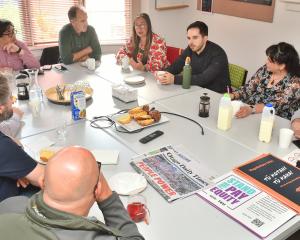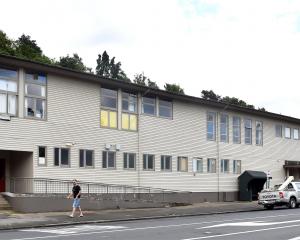From an early age, the John McGlashan pupil has had an inquisitive eye, and a simple walk in the park can turn into a voyage of discovery.
"When I go for a walk, I might see a strange looking tree, or a strange looking cloud, or a funny looking rock.
"I can't help it. It's curiosity. I like to know how things work. So I go home and read about it."
And now Luke's passion for scientific exploration has been rewarded with a medal for gaining the highest marks in the year 7 International Competitions and Assessments for Schools (ICAS) science examination this year.
The exam is sat by hundreds of pupils in New Zealand and Australia each year, and assesses candidates' ability to interpret data, apply data, and higher order skills such as investigating, reasoning and problem solving.
The skills are tested in contexts drawn from four science knowledge areas: Earth and beyond (incorporating the earth sciences and astronomy), natural and processed materials (incorporating chemistry), life and living (incorporating biology and ecology) and energy and change (incorporating physics).
It is not the first time Luke has won a medal in the ICAS science examination. He also received the top marks in the year 4 examination and was awarded the ICAS medal for science while still a pupil at Wakari Primary School.
"That was when I worked out I was quite good at science," he said.
Luke said it was no secret where he got his passion for science. He loves to read, and his father, Jing-Bao, is a professor of bioethics at the University of Otago.
While Luke is still to start secondary level education, he already has plans for his future.
He hopes to use his science and mathematics skills in a career as either an engineer or an architect.












